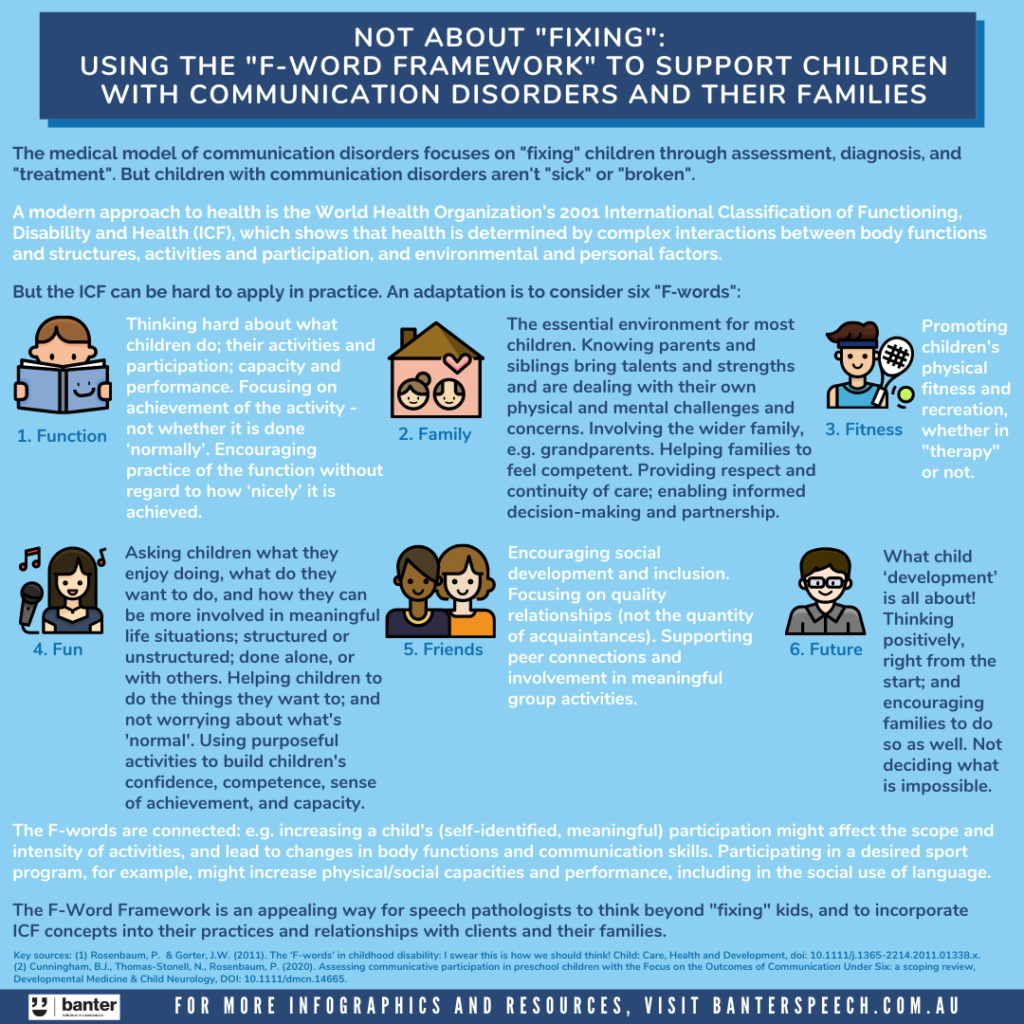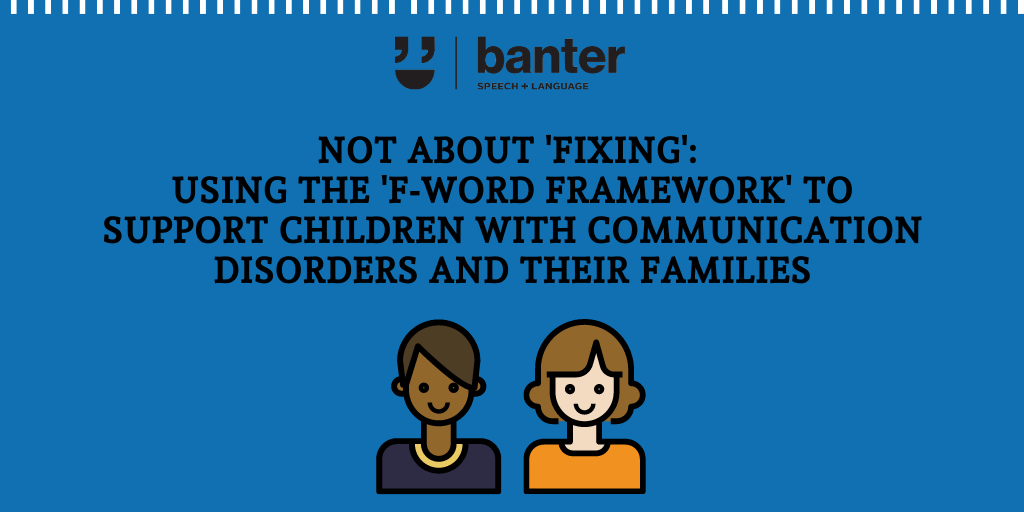The ‘medical model’ of communication disorders focuses on ‘fixing’ children through assessment, diagnosis, and ‘treatment’. But children with communication disorders aren’t ‘sick’ or ‘broken’.
A modern approach to health is the World Health Organization’s 2001 International Classification of Functioning, Disability and Health (ICF), which shows that health is determined by complex interactions between body functions and structures, activities and participation, and environmental and personal factors.
But the ICF can be hard to apply in practice. An adaptation is to consider six ‘F‐words’:
- Function: Thinking hard about what children do; their activities and participation; capacity and performance. Focusing on achievement of the activity – not whether it is done ‘normally’. Encouraging practice of the function without regard to how ‘nicely’ it is achieved.
- Family: The essential environment for most children. Knowing parents and siblings bring talents and strengths and are dealing with their own physical and mental challenges and concerns. Involving the wider family, e.g. grandparents. Helping families to feel competent. Providing respect and continuity of care; enabling informed decision-making and partnership.
- Fitness: Promoting children’s physical fitness and recreation, whether in ‘therapy’ or not.
- Fun: Asking children what they enjoy doing, what do they want to do, and how they can be more involved in meaningful life situations. Thinking about formal (structured) and informal (free‐range) activities; done alone, or with others. Helping children to do the things they want to, and not worrying about what’s ‘normal’. Using purposeful activities to build children’s confidence, competence, sense of achievement, and capacity.
- Friends: Encouraging social development and inclusion. Focusing on quality relationships (not the quantity of acquaintances). Supporting peer connections and involvement in meaningful group activities.
- Future: What child ‘development’ is all about! Thinking positively, right from the start; and encouraging families to do so as well. Not deciding what is impossible.
The F-words are connected: e.g. increasing a child’s (self‐identified, meaningful) participation might affect the scope and intensity of activities, and lead to changes in body functions and communication skills. Participating in a desired sport program, for example, might increase physical/social capacities and performance, including in the social use of language.
The F-Word framework is an appealing way for speech pathologists to think beyond ‘fixing’ kids, and to incorporate ICF concepts into their practices and relationships with clients and their families.

Key sources:
(1) Rosenbaum, P. and Gorter, J.W. (2011). The ‘F‐words’ in childhood disability: I swear this is how we should think! Child: Care, Health and Development, DOI: 10.1111/j.1365-2214.2011.01338.x
(2) Cunningham, B.J., Thomas-Stonell, N., and Rosenbaum, P. (2020). Assessing communicative participation in preschool children with the Focus on the Outcomes of Communication Under Six: a scoping review, Developmental Medicine & Child Neurology, DOI: 10.1111/dmcn.14665
Related articles:
- Focusing speech therapy on functional outcomes: a refresher
- Parents of children aged 0-5 years: 10 practical ideas to increase you child’s participation and communication skills
- Parents of children aged 6-12 years: 10 practical ideas to increase you child’s participation and communication skills
- Parents of children aged 13-15 years: 10 practical ideas to increase you child’s participation and communication skills
- Parents of teenagers aged 16-18 years: 11 ideas to increase participation and communication skills

Hi there, I’m David Kinnane.
Principal Speech Pathologist, Banter Speech & Language
Our talented team of certified practising speech pathologists provide unhurried, personalised and evidence-based speech pathology care to children and adults in the Inner West of Sydney and beyond, both in our clinic and via telehealth.

